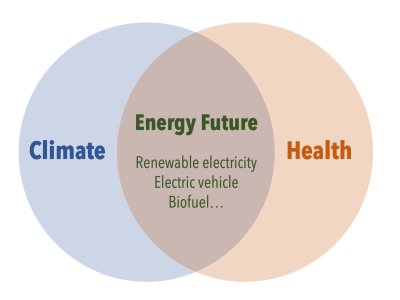
Negative emissions technologies (NETs) are expected to play a central role in achieving climate stabilization. Despite their critical importance to the global climate, near-term deployment of NETs is often determined by local factors, such as policy incentives and human health considerations. In the United States for example, a wide range of NETs are being discussed as decarbonization options, such as afforestation, bioenergy with carbon capture and storage (BECCS), and direct air capture, amongst others. Yet these technologies differ in costs, health impacts and policy incentives, making near-term deployment more promising for some technologies and in some regions. For instance, using BECCS to displace fossil-based electricity generation often reduces air pollutant emissions and associated local health damages. However, in order to provide biomass feedstock for BECCS, some places may suffer health dis-benefits due to the changes in land use and food production that affect food price and nutrition-related health outcomes. In addition to health considerations, current policies also create economic incentives for some NETs, such as California’s Low-carbon Fuel Standard that encourages ethanol production for transportation.
Since technologies often become cheaper as deployment increases (e.g., learning by doing), early deployments driven by health and policy incentives can affect the cost trajectories and relative competitiveness of these technologies in the future. The future cost level and technological readiness of NETs will in turn determine the overall costs to achieve deep decarbonization. Using the U.S. as a test case, we propose an integrated modeling approach to assess the health impacts and policy incentives of immediate NETs deployment, and evaluate the implications of near-term adoption on future dynamics (e.g., technology readiness and mitigation costs). This project will investigate these questions: How will the early adoption of negative emissions technologies (NETs) driven by local health concerns and policy incentives affect (1) the future cost trajectories, (2) the relative competitiveness of different NETs, and (3) the overall cost to achieve deep decarbonization?
Resulting Funding
- Health effects of decarbonization (HEALED): Understanding key determinants for health co-benefits and co-harms, Award Abstract # 2125293, National Science Foundation, $399,472
- DISES: Multi-scale modeling of interactions between climate change, air quality, and social inequalities, Award Abstract # 2108984, National Science Foundation, $1,513,258
Researchers
Wei Peng

Klaus Keller

Noah Scovronick

Joseph Majkut







